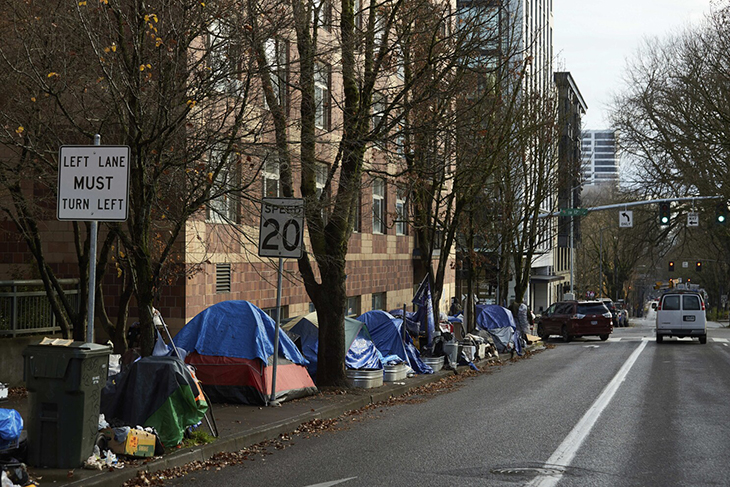
Clackamas County, Oregon, an extension of Portland, has demonstrated a remarkable achievement in combating homelessness by reducing its rate by 65% from 2019 to 2023. This significant decrease is attributed to the implementation of a more comprehensive strategy, as stated by officials.
A detailed analysis provided in Clackamas County’s quarterly report on Supportive Housing Services (SHS) outcomes reveals the effectiveness of their initiatives. Over the span of six months, 314 individuals have been successfully rehoused, indicating tangible progress in addressing homelessness.
Furthermore, the county has exceeded its objectives by placing 429 individuals and 223 homeless households in permanent supportive housing. This outcome surpasses the set goal for the period by 20%, underscoring the commitment and efficacy of Clackamas County’s efforts in providing sustainable solutions to homelessness.
“[J]ust over the last couple of months, we’ve placed 30 households in the Rapid Rehousing program through the support of housing services,” Melissa Erlbaum, executive director of Clackamas Women’s Services, stated. “We’re doing amazing work and partnership with the county.”
KATU News reported that officials highlighted in their findings that Supportive Housing Services (SHS) played a crucial role in averting eviction for 1,369 individuals and 591 households. They emphasized that this intervention is pivotal in the effort to combat homelessness by providing vital assistance to those teetering on the brink of losing their homes. This underscores the significance of SHS as a frontline strategy in mitigating homelessness and stabilizing vulnerable households.
“We work hard to reduce and prevent homelessness early on before it even happens, with rental assistance, and we make sure that we have the resources and the assets up and running to give people housing when they need it,” Ben West, Clackamas County commissioner, said when speaking to KATU News.
Permanent supportive housing represents a pivotal aspect within the comprehensive strategy delineated in the report. This model presents a fusion of stable, enduring accommodation and essential social services tailored to assist individuals who have grappled with homelessness in attaining stability and security in their lives.
Expounding further, permanent supportive housing recognizes the fundamental need for individuals experiencing homelessness not only to secure a permanent abode but also to access the critical support systems indispensable for addressing underlying challenges. These services encompass a spectrum of assistance, including mental health counseling, substance abuse treatment, job training, and access to healthcare. By intertwining housing stability with wraparound support services, this approach aims not only to provide shelter but also to address the multifaceted needs of vulnerable populations, fostering their long-term well-being and integration into society.
This approach acknowledges that homelessness is often intertwined with complex issues such as mental illness, addiction, and poverty. By offering a stable housing environment coupled with tailored support services, permanent supportive housing endeavors to break the cycle of homelessness by addressing its root causes and empowering individuals to rebuild their lives. Ultimately, it represents a compassionate and effective strategy for promoting social inclusion and addressing the systemic issues underlying homelessness.
What are your thoughts? Please comment below and share this news!
True Activist / Report a typo


